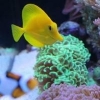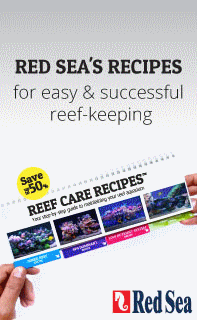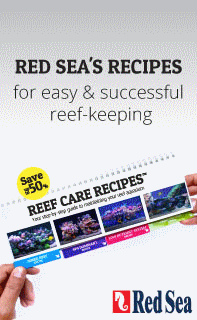-
Topics
-
Latest Update
-
1
WTS/T AI Nero 5 for $200. Open to trading for AI Nero 3 too.
Traded. Not available anymore -
0
加拿大保录取_SFU毕业证成绩单——Q微信751558146西蒙菲莎大学学位证_成绩单_办理SFU文凭学历认证Simon Fraser University
加拿大保录取_SFU毕业证成绩单——Q微信751558146西蒙菲莎大学学位证_成绩单_办理SFU文凭学历认证Simon Fraser University加拿大保录取_SFU毕业证成绩单——Q微信751558146西蒙菲莎大学学位证_成绩单_办理SFU文凭学历认证Simon Fraser University Q!微信751558146/办理加拿大毕业证/成绩单/真实使馆/教育部学历认证/诚招代理/ 鑫源留学服务中心:实体公司,注册经营,行业标杆,精益求精! 专注加拿大地区,高精端提供以下服务: 一:毕业证、成绩单等全套材料,从防伪到印刷,水印底纹到钢印烫金, 二:真实保录取各大院校 三:真实教育部认证,教育部存档,教育部留服网站永久可查 四:留信认证,留学生信息网站永久可查 联系人:Johnny QQ:751558146 微信:751558146 二:教育部认证的用途: 如果您计划在国内发展,那么办理国内教育部认证是必不可少的。事业性用人单位如银行,国企,公务员,在您应聘时都会需要您提供这个认证。其他私营、外企企业,无需提供!办理教育部认证所需资料众多且烦琐,所有材料您都必须提供原件,我们凭借丰富的经验,帮您快速整合材料,让您少走弯路。 专业为您服务,如有需要,请联系我:Johnny QQ:751558146 微信:751558146 特别关注:【业务选择办理准则】 一、工作未确定,回国需先给父母、亲戚朋友看下文凭的情况 办理一份就读学校的毕业证成绩单即可 二、回国进私企、外企、自己做生意的情况 这些单位是不查询毕业证真伪的,而且国内没有渠道去查询国外文凭的真假,也不需要提供真实教育部认证。鉴于此,办理一份毕业证成绩单即可 三、回国进国企、银行等事业性单位或者考公务员的情况 办理一份毕业证成绩单,递交材料到教育部,办理真实教育部认证 诚招代理:本公司诚聘当地合作代理人员,如果你有业余时间,有兴趣就请联系我们。 敬告:面对网上有些不良个人中介,真实教育部认证故意虚假报价,毕业证、成绩单却报价很高,挖坑骗留学学生做和原版差异很大的毕业证和成绩单,却不做认证,欺骗广大留学生,请多留心!办理时请电话联系,或者视频看下对方的办公环境,办理实力,选择实体公司,以防被骗! 多伦多大学 University of Toronto 多伦多大学国际预科课程 University of Toronto IFP Program 多伦多大学绿色通道(士嘉堡校区)Green Path Program 西安大略大学 University of Western Ontario 滑铁卢大学 University of Waterloo 卡尔顿大学 Carleton University 约克大学 York University 圭尔夫大学 University of Guelph 温莎大学 University of Windsor 皇后大学 Queen’s University 麦克马斯特大学 McMaster University 布鲁克大学 Brock University 渥太华大学 UNIVERSITY OF OTTAWA 威尔弗里德?劳里埃大学 Wilfrid Laurier University 阿尔格玛大学 Algoma University 川特大学 Trent University 瑞尔森大学 Ryerson University 劳伦森大学 Laurentian University 安大略理工大学 University of Ontario Insititute 湖首大学 Lakehead University 尼皮辛大学 Nipissing University 英属哥伦比亚大学 University of British Columbia 西蒙菲莎大学 Simon Fraser University 维多利亚大学 University of Victoria 北英属哥伦比亚大学 Northern British Columbia University 温哥华岛大学 Vancouver Island University 昆特兰理工大学 Kwantlen Polytechnic University 汤姆逊大学 Thompson Rivers University 菲莎河谷大学 University of the Fraser Valley 卡毕兰诺大学 Capilano University 艾米丽卡尔艺术与设计大学 Emily Carr University of Art and Design 皇家路大学 Royal Road University 西三一大学 Trinity Western University 菲尔莱狄更斯大学 Fairlegh Dickinson University Vancouver 西蒙弗雷泽大学Simon Fraser University 阿尔伯塔大学 THE UNIVERSITY OF ALBERTA 卡尔加里大学 University of calgary 莱斯布里奇大学 University of Lethbridge 皇家山大学 Mount Royal University 阿萨巴斯卡大学 Athabasca University 萨省大学 University of Saskatchewan 里贾纳大学 The University of Regina 曼尼托巴大学 University of Manitoba 温尼伯格大学 The University of Winnipeg 布兰登大学 Brandon University 温尼伯大学University of Winnipeg 麦吉尔大学 McGill University 康卡迪亚大学 Concordia University 主教大学 Bishop's University 蒙特利尔大学 University of Montreal 拉瓦尔大学 University of Laval 谢布克大学 Sherbrook University 达尔豪斯大学 Dalhousie University 圣玛丽大学 Saint Mary’s University 阿卡迪亚大学 ACADIA UNIVERSITY 圣文森山大学 Mount Saint Vincent University (MSVU) 不列颠海角大学 Cape Breton University 圣弗朗西斯泽维尔大学 St. Francis Xavier University 新苏格兰艺术与设计大学 NSCAD University 新布伦瑞克大学 University of New Brunswick 蒙特埃里森大学 Mount Allison University 圣?托马斯大学 St. Thomsa University 爱德华王子岛大学 University of Prince Edward Island 乔治布朗学院 George Brown College 尼亚加拉学院 Niagara College 亚岗昆学院 Algonquin College 圭尔夫大学 University of Guelph 康尼斯嘉学院 Conestoga College 马拉斯比那大学学院 Malaspina University-College 劳伦森大学 Laurentian University 南希坎贝尔学院 Nancy Campbell Collegiate Institute特伦特大学 Trent University 谢布克大学 Université de Sherbrooke 女王大学 Queen's University 西安大略大学 University of Western Ontario UWO 劳里埃大学 Wilfrid Laurier University 麦克马斯特大学 McMaster University 莱斯布里奇大学 University of Lethbridge 滑铁卢大学 university of waterloo 拉瓦尔大学 Université Laval 劳伦森大学 laurentian university 纽芬兰纪念大学 Memorial University of Newfoundland 维多利亚大学 University of Victoria 肯高迪亚大学 Concordia University 圣玛丽大学 Saint Mary’s University 戴尔豪西大学 Dalhousie University 约克大学 York University 埃里森山大学 罗瑞尔大学 Wilfrid Laurier University 加拿大保录取_SFU毕业证成绩单——Q微信751558146西蒙菲莎大学学位证_成绩单_办理SFU文凭学历认证Simon Fraser University -
0
美国学位证_Brandeis毕业证成绩单+Q微信751558146布兰迪斯大学学位证_成绩单_办理Brandeis文凭学历认证Brandeis University
美国学位证_Brandeis毕业证成绩单+Q微信751558146布兰迪斯大学学位证_成绩单_办理Brandeis文凭学历认证Brandeis University美国学位证_Brandeis毕业证成绩单+Q微信751558146布兰迪斯大学学位证_成绩单_办理Brandeis文凭学历认证Brandeis Univ Q微信751558146(诚招代理)办理国外毕业证成绩单/国外真实使馆/国外学历认证 鑫源教育留学服务中心:实体公司,注册经营,行业标杆,精益求精! 高精端提供以下服务: ㈠:毕业证、成绩单等全套材料,从防伪到印刷,水印底纹到钢印烫金, ㈡:真实保录取各大院校 ㈢:真实教育部认证,教育部存档,教育部留服网站永久可查 ㈣:留信认证,留学生信息网站永久可查 联系人:Johnny(QQ/微信)751558146 本公司是一家专业面向“美国、加拿大、澳洲、新西兰、英国、新加坡、法国、德国、荷兰”等国的学历认证中心,长期专业为留学生解决毕业难的问题。本公司长期和教育部以及各国使馆合作,拥有强大的背景与后台,保持着信誉优良的关系网络。使馆回国人员留学证明和教育部认证完全按照正规程序、时间办理,客户可预约来公司面谈,有专业的教育咨询顾问实行一对一服务!也可随我司工作人员一同前往教育部窗口递交材料,更有保障,更放心。为您回国发展扫除一切后顾之忧! 特别关注:〖业务选择办理准则〗 ㈠:工作未确定,回国需先给父母、亲戚朋友看下学历认证的情况办理一份就读学校的毕业证成绩单即可 ㈡:回国进私企、外企、自己做生意的情况 这些单位是不查询毕业证真伪的,而且国内没有渠道去查询国外学历认证的真假,也不需要提供真实教育部认证。鉴于此,办理一份毕业证成绩单即可 ㈢:回国进国企、银行等事业性单位或者考公务员的情况办理一份毕业证成绩单,递交材料到教育部,办理真实教育部认证 诚招代理:本公司诚聘当地合作代理人员,如果你有业余时间,有兴趣就请联系我们。 敬告:面对网上有些不良个人中介,真实教育部认证故意虚假报价,毕业证、成绩单却报价很高,挖坑骗留学学生和 原版差异很大的毕业证和成绩单,却不做认证,欺骗广大留学生,请多留心!办理时请电话联系,或者视频看下对方的办公环境,办理实力,选择实体公司,以防被骗! ersity美国学位证_Brandeis毕业证成绩单+Q微信751558146布兰迪斯大学学位证_成绩单_办理Brandeis文凭学历认证Brandeis University -
0
加拿大保录取_UBC毕业证成绩单——Q微信751558146英属哥伦比亚大学学位证_成绩单_办理UBC文凭学历认证University of British Columbia
加拿大保录取_UBC毕业证成绩单——Q微信751558146英属哥伦比亚大学学位证_成绩单_办理UBC文凭学历认证University of British Columbia加拿大保录取_UBC毕业证成绩单——Q微信751558146英属哥伦比亚大学学位证_成绩单_办理UBC文凭学历认证Universi Q!微信751558146/办理加拿大毕业证/成绩单/真实使馆/教育部学历认证/诚招代理/ 鑫源留学服务中心:实体公司,注册经营,行业标杆,精益求精! 专注加拿大地区,高精端提供以下服务: 一:毕业证、成绩单等全套材料,从防伪到印刷,水印底纹到钢印烫金, 二:真实保录取各大院校 三:真实教育部认证,教育部存档,教育部留服网站永久可查 四:留信认证,留学生信息网站永久可查 联系人:Johnny QQ:751558146 微信:751558146 二:教育部认证的用途: 如果您计划在国内发展,那么办理国内教育部认证是必不可少的。事业性用人单位如银行,国企,公务员,在您应聘时都会需要您提供这个认证。其他私营、外企企业,无需提供!办理教育部认证所需资料众多且烦琐,所有材料您都必须提供原件,我们凭借丰富的经验,帮您快速整合材料,让您少走弯路。 专业为您服务,如有需要,请联系我:Johnny QQ:751558146 微信:751558146 特别关注:【业务选择办理准则】 一、工作未确定,回国需先给父母、亲戚朋友看下文凭的情况 办理一份就读学校的毕业证成绩单即可 二、回国进私企、外企、自己做生意的情况 这些单位是不查询毕业证真伪的,而且国内没有渠道去查询国外文凭的真假,也不需要提供真实教育部认证。鉴于此,办理一份毕业证成绩单即可 三、回国进国企、银行等事业性单位或者考公务员的情况 办理一份毕业证成绩单,递交材料到教育部,办理真实教育部认证 诚招代理:本公司诚聘当地合作代理人员,如果你有业余时间,有兴趣就请联系我们。 敬告:面对网上有些不良个人中介,真实教育部认证故意虚假报价,毕业证、成绩单却报价很高,挖坑骗留学学生做和原版差异很大的毕业证和成绩单,却不做认证,欺骗广大留学生,请多留心!办理时请电话联系,或者视频看下对方的办公环境,办理实力,选择实体公司,以防被骗! 多伦多大学 University of Toronto 多伦多大学国际预科课程 University of Toronto IFP Program 多伦多大学绿色通道(士嘉堡校区)Green Path Program 西安大略大学 University of Western Ontario 滑铁卢大学 University of Waterloo 卡尔顿大学 Carleton University 约克大学 York University 圭尔夫大学 University of Guelph 温莎大学 University of Windsor 皇后大学 Queen’s University 麦克马斯特大学 McMaster University 布鲁克大学 Brock University 渥太华大学 UNIVERSITY OF OTTAWA 威尔弗里德?劳里埃大学 Wilfrid Laurier University 阿尔格玛大学 Algoma University 川特大学 Trent University 瑞尔森大学 Ryerson University 劳伦森大学 Laurentian University 安大略理工大学 University of Ontario Insititute 湖首大学 Lakehead University 尼皮辛大学 Nipissing University 英属哥伦比亚大学 University of British Columbia 西蒙菲莎大学 Simon Fraser University 维多利亚大学 University of Victoria 北英属哥伦比亚大学 Northern British Columbia University 温哥华岛大学 Vancouver Island University 昆特兰理工大学 Kwantlen Polytechnic University 汤姆逊大学 Thompson Rivers University 菲莎河谷大学 University of the Fraser Valley 卡毕兰诺大学 Capilano University 艾米丽卡尔艺术与设计大学 Emily Carr University of Art and Design 皇家路大学 Royal Road University 西三一大学 Trinity Western University 菲尔莱狄更斯大学 Fairlegh Dickinson University Vancouver 西蒙弗雷泽大学Simon Fraser University 阿尔伯塔大学 THE UNIVERSITY OF ALBERTA 卡尔加里大学 University of calgary 莱斯布里奇大学 University of Lethbridge 皇家山大学 Mount Royal University 阿萨巴斯卡大学 Athabasca University 萨省大学 University of Saskatchewan 里贾纳大学 The University of Regina 曼尼托巴大学 University of Manitoba 温尼伯格大学 The University of Winnipeg 布兰登大学 Brandon University 温尼伯大学University of Winnipeg 麦吉尔大学 McGill University 康卡迪亚大学 Concordia University 主教大学 Bishop's University 蒙特利尔大学 University of Montreal 拉瓦尔大学 University of Laval 谢布克大学 Sherbrook University 达尔豪斯大学 Dalhousie University 圣玛丽大学 Saint Mary’s University 阿卡迪亚大学 ACADIA UNIVERSITY 圣文森山大学 Mount Saint Vincent University (MSVU) 不列颠海角大学 Cape Breton University 圣弗朗西斯泽维尔大学 St. Francis Xavier University 新苏格兰艺术与设计大学 NSCAD University 新布伦瑞克大学 University of New Brunswick 蒙特埃里森大学 Mount Allison University 圣?托马斯大学 St. Thomsa University 爱德华王子岛大学 University of Prince Edward Island 乔治布朗学院 George Brown College 尼亚加拉学院 Niagara College 亚岗昆学院 Algonquin College 圭尔夫大学 University of Guelph 康尼斯嘉学院 Conestoga College 马拉斯比那大学学院 Malaspina University-College 劳伦森大学 Laurentian University 南希坎贝尔学院 Nancy Campbell Collegiate Institute特伦特大学 Trent University 谢布克大学 Université de Sherbrooke 女王大学 Queen's University 西安大略大学 University of Western Ontario UWO 劳里埃大学 Wilfrid Laurier University 麦克马斯特大学 McMaster University 莱斯布里奇大学 University of Lethbridge 滑铁卢大学 university of waterloo 拉瓦尔大学 Université Laval 劳伦森大学 laurentian university 纽芬兰纪念大学 Memorial University of Newfoundland 维多利亚大学 University of Victoria 肯高迪亚大学 Concordia University 圣玛丽大学 Saint Mary’s University 戴尔豪西大学 Dalhousie University 约克大学 York University 埃里森山大学 罗瑞尔大学 Wilfrid Laurier University y of British Columbia -
0
美国学位证_PSU毕业证成绩单+Q微信751558146宾州州立大学学位证_成绩单_办理PSU文凭学历认证Penn State University Park
美国学位证_PSU毕业证成绩单+Q微信751558146宾州州立大学学位证_成绩单_办理PSU文凭学历认证Penn State University Park美国学位证_PSU毕业证成绩单+Q微信751558146宾州州立大学学位证_成绩单_办理PSU文凭学历认证Penn State University Park美国学位证_PSU毕 Q微信751558146(诚招代理)办理国外毕业证成绩单/国外真实使馆/国外学历认证 鑫源教育留学服务中心:实体公司,注册经营,行业标杆,精益求精! 高精端提供以下服务: ㈠:毕业证、成绩单等全套材料,从防伪到印刷,水印底纹到钢印烫金, ㈡:真实保录取各大院校 ㈢:真实教育部认证,教育部存档,教育部留服网站永久可查 ㈣:留信认证,留学生信息网站永久可查 联系人:Johnny(QQ/微信)751558146 本公司是一家专业面向“美国、加拿大、澳洲、新西兰、英国、新加坡、法国、德国、荷兰”等国的学历认证中心,长期专业为留学生解决毕业难的问题。本公司长期和教育部以及各国使馆合作,拥有强大的背景与后台,保持着信誉优良的关系网络。使馆回国人员留学证明和教育部认证完全按照正规程序、时间办理,客户可预约来公司面谈,有专业的教育咨询顾问实行一对一服务!也可随我司工作人员一同前往教育部窗口递交材料,更有保障,更放心。为您回国发展扫除一切后顾之忧! 特别关注:〖业务选择办理准则〗 ㈠:工作未确定,回国需先给父母、亲戚朋友看下学历认证的情况办理一份就读学校的毕业证成绩单即可 ㈡:回国进私企、外企、自己做生意的情况 这些单位是不查询毕业证真伪的,而且国内没有渠道去查询国外学历认证的真假,也不需要提供真实教育部认证。鉴于此,办理一份毕业证成绩单即可 ㈢:回国进国企、银行等事业性单位或者考公务员的情况办理一份毕业证成绩单,递交材料到教育部,办理真实教育部认证 诚招代理:本公司诚聘当地合作代理人员,如果你有业余时间,有兴趣就请联系我们。 敬告:面对网上有些不良个人中介,真实教育部认证故意虚假报价,毕业证、成绩单却报价很高,挖坑骗留学学生和 原版差异很大的毕业证和成绩单,却不做认证,欺骗广大留学生,请多留心!办理时请电话联系,或者视频看下对方的办公环境,办理实力,选择实体公司,以防被骗! 证成绩单+Q微信751558146宾州州立大学学位证_成绩单_办理PSU文凭学历认证Penn State University Park
-





Recommended Posts
Join the conversation
You can post now and register later. If you have an account, sign in now to post with your account.